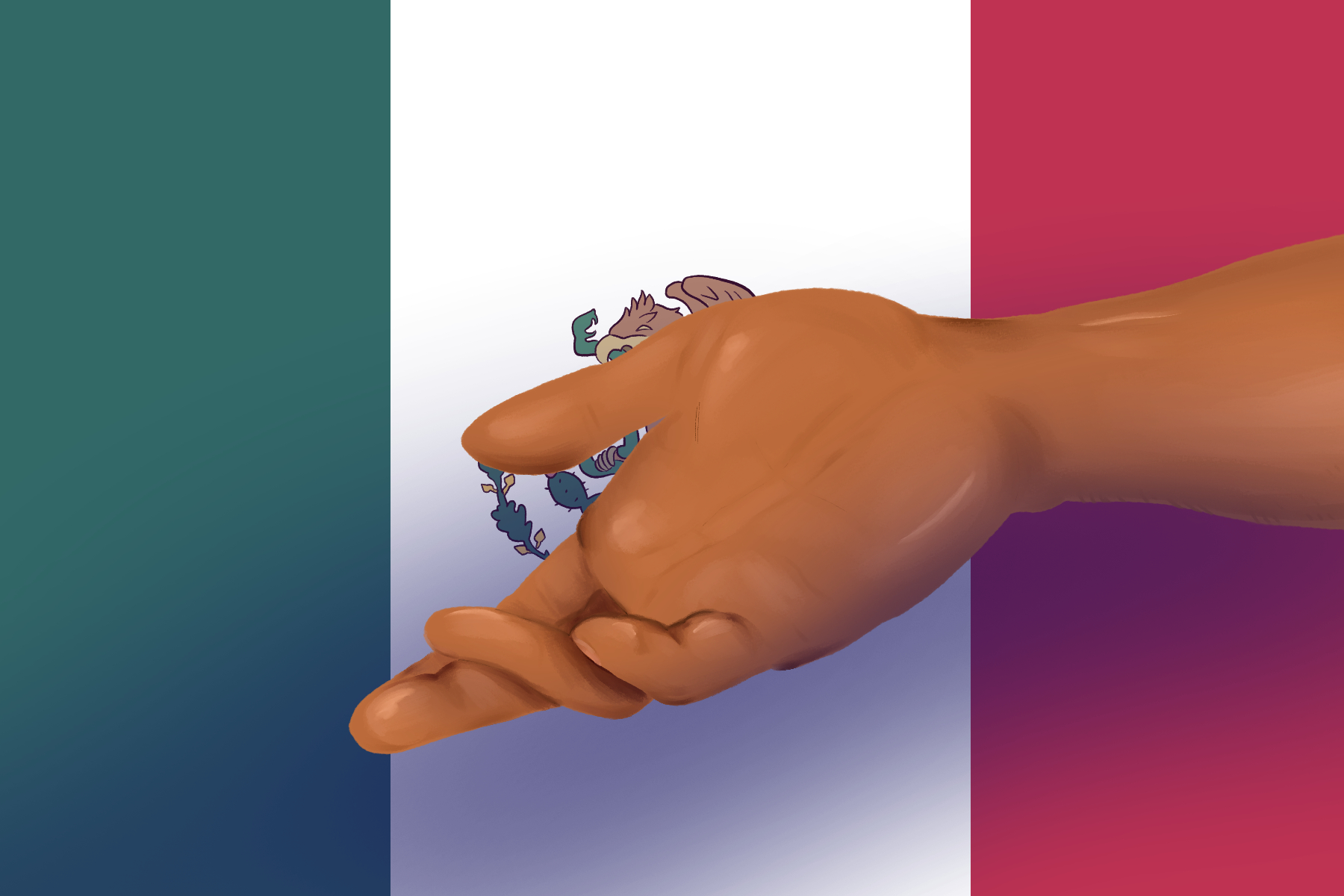By now, many have already heard hot take after hot take about the controversy surrounding Yahritza y Su Esencia, the Mexican American musical trio that specializes in the urban sierreño subgenre. Since the start of the controversy, Latinos, especially Mexicans, have endlessly scrutinized and reexamined how the sibling trio’s comments about Mexico reflect the often contentious topic of Mexican American identity. Many Mexicans have argued that Mexican Americans forget the “Mexican” part of their identity and instead choose to fully lean into — and sometimes weaponize — the “American” part. As a first-generation Mexican American, a part of me can’t help but agree.
The backlash against Yahritza y Su Esencia began in July 2023 when an interview clip resurfaced of the trio expressing their opinions on Mexican food and Mexico City. The comments weren’t — in hindsight — the most flattering and offended many, many, many Mexicans. As the controversy grew, two more videos resurfaced of lead singer Yahritza Martinez. In the first video, Martinez scrunches her face as she holds a plastic bag filled with Coca-Cola from Mexico City. In the second clip, she declares that although she sings in Spanish and has a majority Spanish-speaking audience, everyone who interacts with her should only speak to her in English.
Just as quickly as the videos resurfaced, so too did calls to cancel the band. At first, social media users created memes that threw a couple of light-hearted jabs at the trio. But eventually, memes with anti-indigenous remarks and other harmful posts began to appear. The distasteful anti-indigenous remarks directed at Yahritza y Su Esencia should never be excused as typical Mexican humor. What people should note, however, is that the overall reaction to the trio’s comments accentuates where Mexican Americans and Mexicans’ views on culture diverge. On one hand, Mexican Americans do not understand why Yahritza y Su Esencia’s comments about Mexico have caused such a stir, as many of them hold similar sentiments. On the other hand, Mexicans feel like Yahritza y Su Esencia has taken advantage of them; the band’s genre of music is deeply rooted in Mexico, and the majority of the trio’s fans are Mexican. Our conflicting reactions are ultimately the result of our differing identities and the environments that forged them.
The Mexican identity is — obviously — born and cultivated within Mexico and its various regions. In most cases, it is an identity forged in fire. Mexico is a country that other nations have ravaged, belittled, exploited and meddled with. (As the saying goes: “Poor Mexico, So far from God, so close to the United States.”) As a result, Mexicans are incredibly protective of their culture and country despite the nation’s complicated past. The last thing that Mexicans will part from is their unending, all-consuming pride in the things they can control: their gastronomy, their language and slang, their music, their traditions and their navigation of life.
While also forged in fire, the Mexican American identity developed under discriminatory circumstances: schools that beat the Spanish language out of children, segregation and unfair labor laws. Over time, Mexican Americans’ identity became less about what language they spoke or what food they ate and more about the fact that Mexican Americans were still standing — were still there.
I wish I could explain the Mexican American experience with words. I wish I could explain the journey and its countless winding paths — the clearly marked ones and the ones hidden under weeds. But I can’t. There are countless “Mexican American experiences.” However, there is one path that all of us walk upon: we question the Mexican part of ourselves. The idea that we must stray from our Mexican heritage becomes overwhelming; so does our desperate need to hold onto it. It is something like being pulled by an ocean tide. Its immense strength pushes us forward and then pulls us back, not caring if we can swim or not. An endless push and pull. That’s what it is.
But most Mexican Americans unknowingly place ourselves in this endless push and pull. Or we come across a fork in our path and panic, quick to blame ourselves for our supposed failure in navigation.
I have always hated the saying “ni de aquí, ni de allá”: “neither from here nor there” (or, as Abraham Quintanilla put it in the “Selena” movie, “We gotta be more Mexican than the Mexicans and more American than the Americans, both at the same time. It’s exhausting!”). Hot take, I know! The expression gives Mexican Americans an excuse to not connect with any aspect of their Mexican heritage. Many are quick to dismiss the Spanish language. They refuse to eat pozole. They change the station when a corrido plays. And they hold the belief that we can’t be too much of anything. This dismissal allows them to feel superior to their Mexican counterparts. However, they still feel inferior in America. It ultimately creates an antagonist of everyone. The saying suspends us in limbo. It makes us believe that neither place will ever accept us — especially Mexico.
But Mexicans welcome everyone who loves and respects them regardless of nationality. They have embraced Randy Arozarena, Luis Miguel and Chavela Vargas — who famously coined the phrase, “We Mexicans are born wherever the fuck we want to be born!”). (She was born in Costa Rica and has no roots in Mexico, by the way. An icon, truly.) And who could forget Selena Quintanilla? She was born and raised in the United States and didn’t speak a lick of Spanish growing up. Yet Mexicans still deeply and endlessly love and adore Selena because she was proud of her Mexican identity and cared enough to elevate it to new heights.
The problem isn’t that Mexican Americans are “neither from here nor there.” Issues arise when Mexican Americans believe that they are superior to Mexicans — “too good” to honor and respect their roots. Beneath the anger and endless jabs toward Yahritza y Su Esencia lies this belief. Mexicans feel like the band betrayed them after the nation welcomed the trio and enjoyed their music.
To my disconnected Mexican Americans, it is never too late to get in touch with your roots. However, just as you desire grace from those around you during your journey, remember to pass that same grace along to others. Carrying two identities is a lovely, aching thing. Make sure to honor both.















